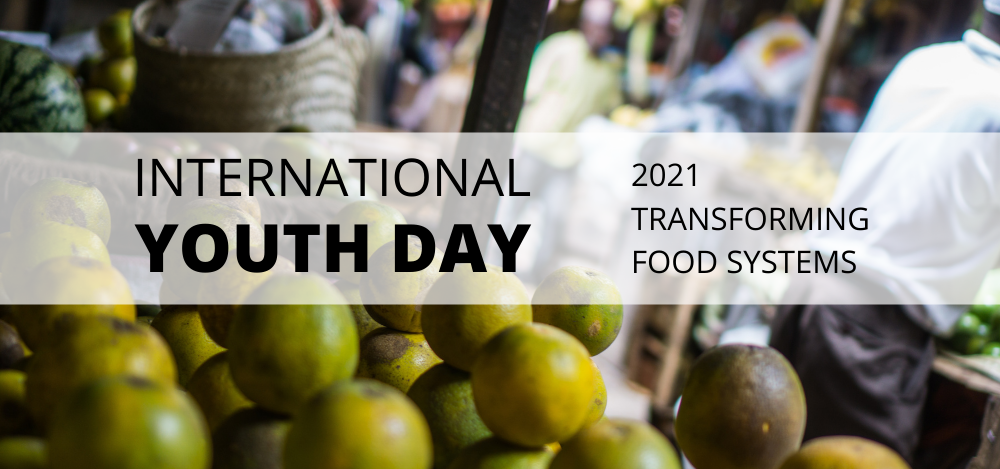Agriculture production is highly dependent on water and increasingly subject to water risks. It is the largest using sector and a major polluter of water (OECD) – around 70% of all freshwater is used for agriculture (UNESCO, World Bank). With the world’s population expected to increase by 2 billion in the next 30 years, simply producing a larger volume of food more sustainably will not ensure human and planetary wellbeing. Youth are crucial in amplifying the efforts to restore the planet and protect life, while integrating biodiversity in the transformation of food systems.
During the 2021 ECOSOC Youth Forum (EYF) in April, the issues highlighted included the impact of the COVID-19 pandemic, particularly related to its effect on human health, the environment, and food systems. The official recommendations of the EYF stressed the importance of working towards more equitable food systems. In addition, they highlighted the need for youth to make informed decisions on food choices through increasing global education on the healthiest and most sustainable options for people and the environment. The International Youth Day theme aims to serve as a platform for young people to continue the discussions from the EYF in the lead up to the High-Level Food Systems Summit later this year.
What is GWP youth doing?
In West Africa, the Your Future, Your Climate (#TonFuturTonClimat) initiative aims to integrate young people into decision-making processes for water, agriculture, and forestry in Benin, Burkina Faso, and Togo. The initiative, coordinated by GWP West Africa and partners, recently entered its 2nd phase.
In 2019, the Southern African Development Community (SADC), with support from GWP Southern Africa, established a regional network of youth representatives to foster integrated planning and implementation through the Water, Energy, Food (WEF) Nexus. The SADC Water Energy Food Nexus Youth Innovation Network (SAYWIN) supports youth entrepreneurship and empowerment around water, health, energy and food.
Meet some of the people involved
Hervé Kasokota is national coordinator of SAYWIN in the Democratic Republic of Congo. He says that youth can support and improve water and food security through innovation, involvement, determination, and dynamism.
Faith Khatji Mokgalaka is a student and entrepreneur in South Africa. Her company Puno Greenery aims to move Africa towards a food secure future through eco-friendly methods.
Flamay Ahiafor in Togo is a water sanitation consultant and a member of the Youth Parliament for Water (WYPW). He worked with GWP West Africa on many initiatives, including the Francophone Youth for Water and the TonFuturTonClimat initiative.
Dineo Ramesega is a garlic farmer in South Africa. She says the agricultural industry is still quite dominated by senior white men, and she wants to see more young black women get into the sector.
What are YOU doing to bridge the gap between water security and sustainable food systems? Welcome to get in touch and share your story - email us on gwp@gwp.org.

